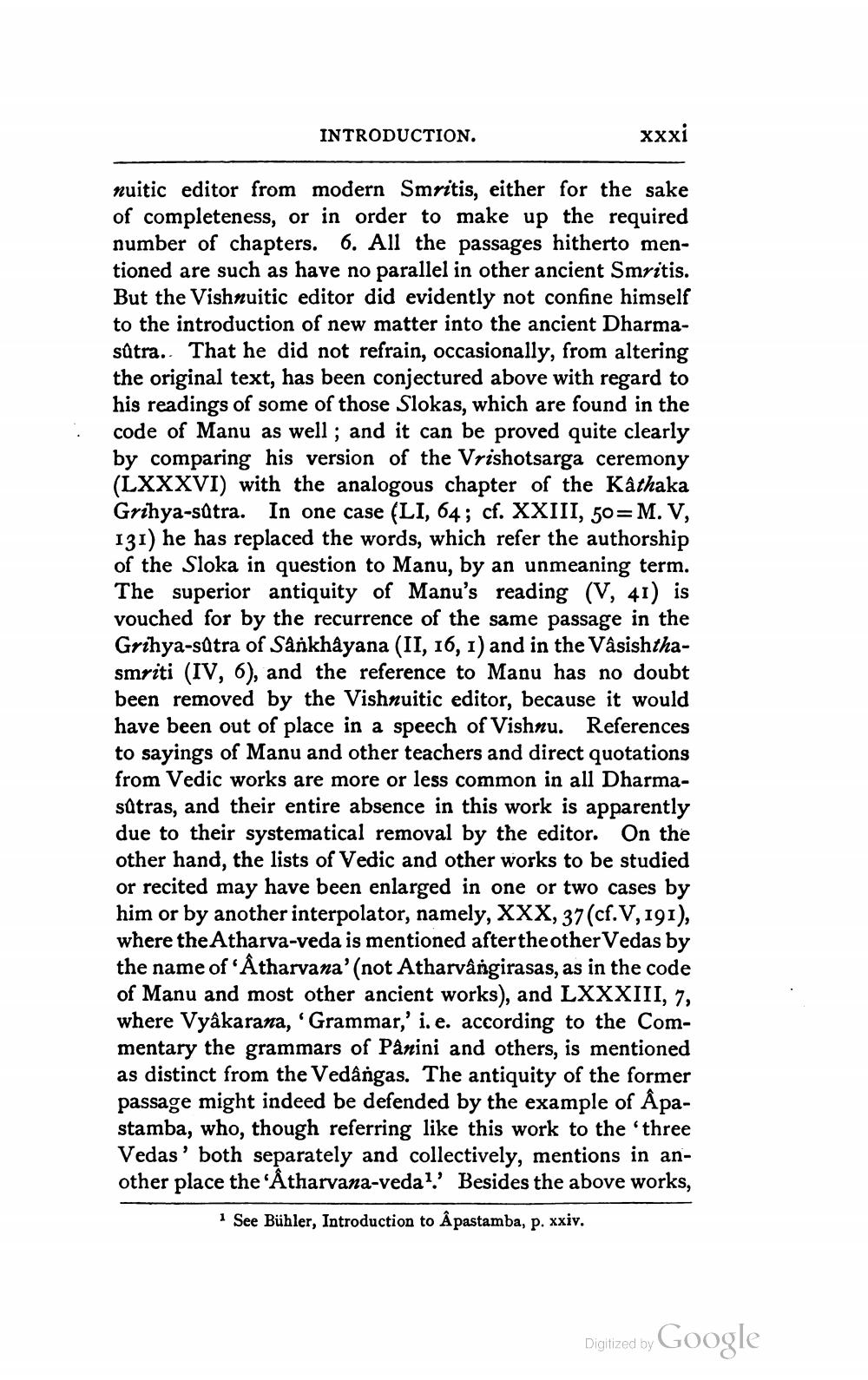________________
INTRODUCTION.
xxxi
nuitic editor from modern Smritis, either for the sake of completeness, or in order to make up the required number of chapters. 6. All the passages hitherto mentioned are such as have no parallel in other ancient Smritis. But the Vishnuitic editor did evidently not confine himself to the introduction of new matter into the ancient Dharmasútra.. That he did not refrain, occasionally, from altering the original text, has been conjectured above with regard to his readings of some of those Slokas, which are found in the code of Manu as well ; and it can be proved quite clearly by comparing his version of the Vrishotsarga ceremony (LXXXVI) with the analogous chapter of the Kathaka Grihya-sátra. In one case (LI, 64; cf. XXIII, 50=M. V, 131) he has replaced the words, which refer the authorship of the Sloka in question to Manu, by an unmeaning term. The superior antiquity of Manu's reading (V, 41) is vouched for by the recurrence of the same passage in the Grihya-sútra of Sankhåyana (II, 16, 1) and in the Vâsishthasmriti (IV, 6), and the reference to Manu has no doubt been removed by the Vishnuitic editor, because it would have been out of place in a speech of Vishnu. References to sayings of Manu and other teachers and direct quotations from Vedic works are more or less common in all Dharmasatras, and their entire absence in this work is apparently due to their systematical removal by the editor. On the other hand, the lists of Vedic and other works to be studied or recited may have been enlarged in one or two cases by him or by another interpolator, namely, XXX, 37(cf.V,191), where the Atharva-veda is mentioned after theotherVedas by the name of Åtharvana' (not Atharvangirasas, as in the code of Manu and most other ancient works), and LXXXIII, 7, where Vyâkarana, 'Grammar,' i.e. according to the Commentary the grammars of Panini and others, is mentioned as distinct from the Vedângas. The antiquity of the former passage might indeed be defended by the example of Âpastamba, who, though referring like this work to the three Vedas' both separately and collectively, mentions in another place the 'Atharvana-veda?.' Besides the above works,
* See Bühler, Introduction to Apastamba, p. xxiv.
Digitized by
Digitized by Google




